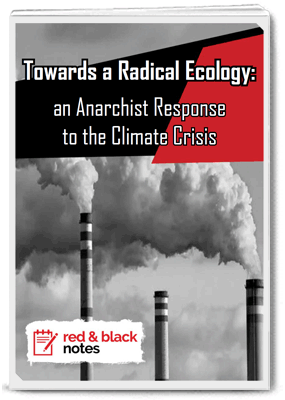Authors: T. H. Livingstone and James Sherriff, plus one unknown author
PDF File Size: 327 KB
It is no exaggeration to say that we are at a turning point in history.
Our collective response to the global crises we are now facing will determine our success in not only the next few years, but the next few decades – perhaps even the next century. The coronavirus pandemic has, of course, become the dominant issue of 2020, but the climate crisis has not halted or even slowed its progress behind the scenes. Bushfires sweep the globe as summers come and go, and the tipping points beyond which recovery will become impossible are cascading one-by-one. Time is running out.
These 2 texts were found at the Red & Black Notes site. The first article, Towards a Radical Ecology: an Anarchist Response to the Climate Crisis was written by T. H. Livingstone and James Sherriff. The author of the second article, There is No Parliamentary Road to Climate Justice is unknown.
Continue reading

 Author: Graham Purchase | File size: 330 KB
Author: Graham Purchase | File size: 330 KB Author: Scott Rittenhouse | File size: 517 KB
Author: Scott Rittenhouse | File size: 517 KB

